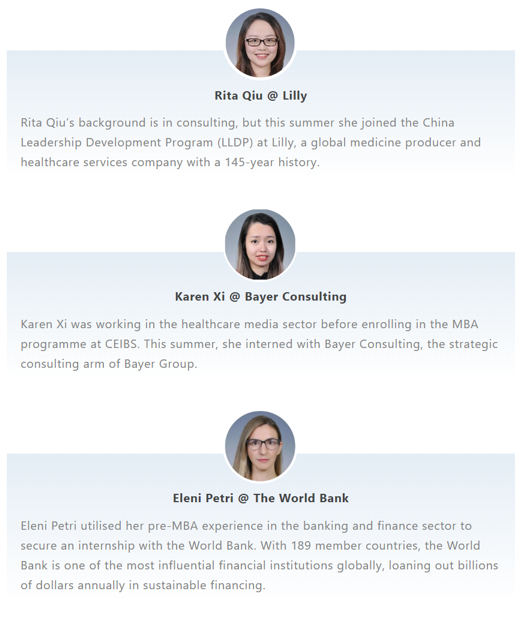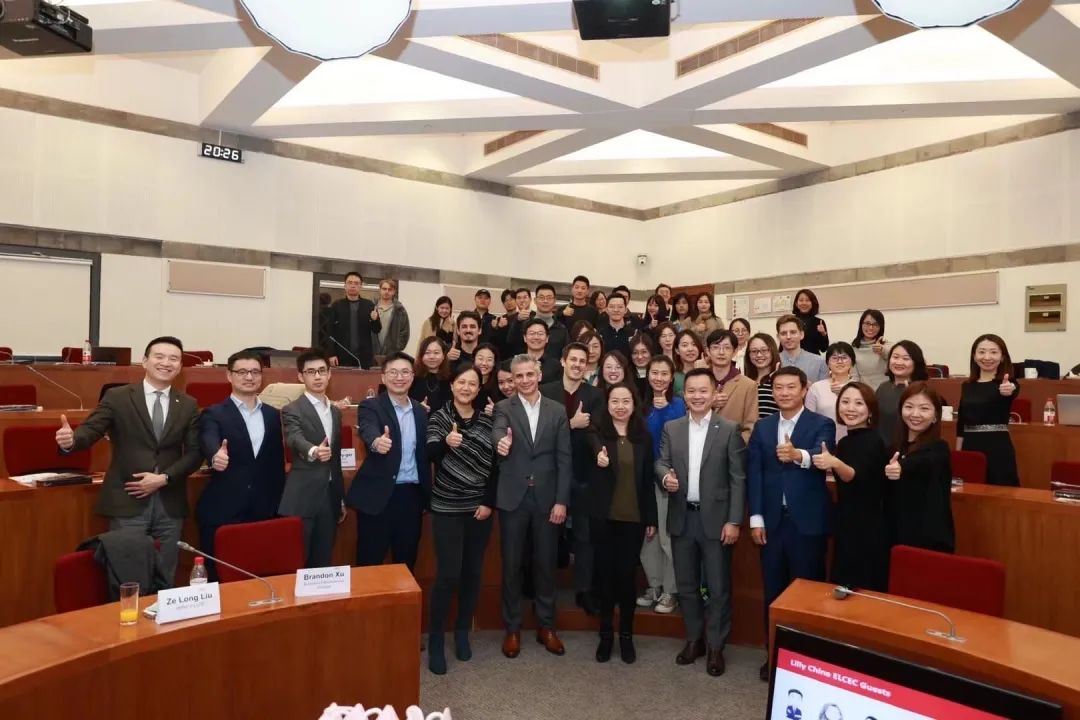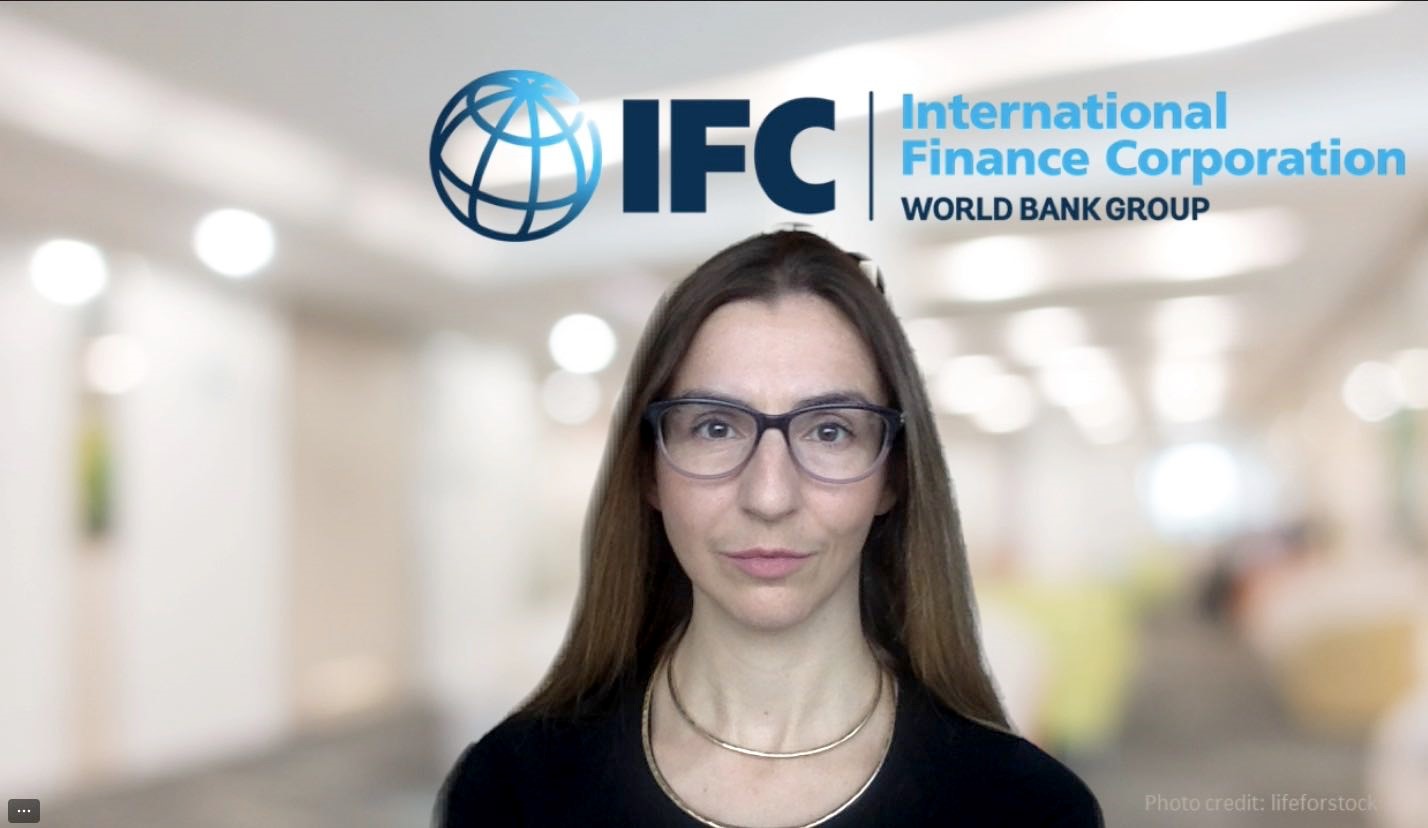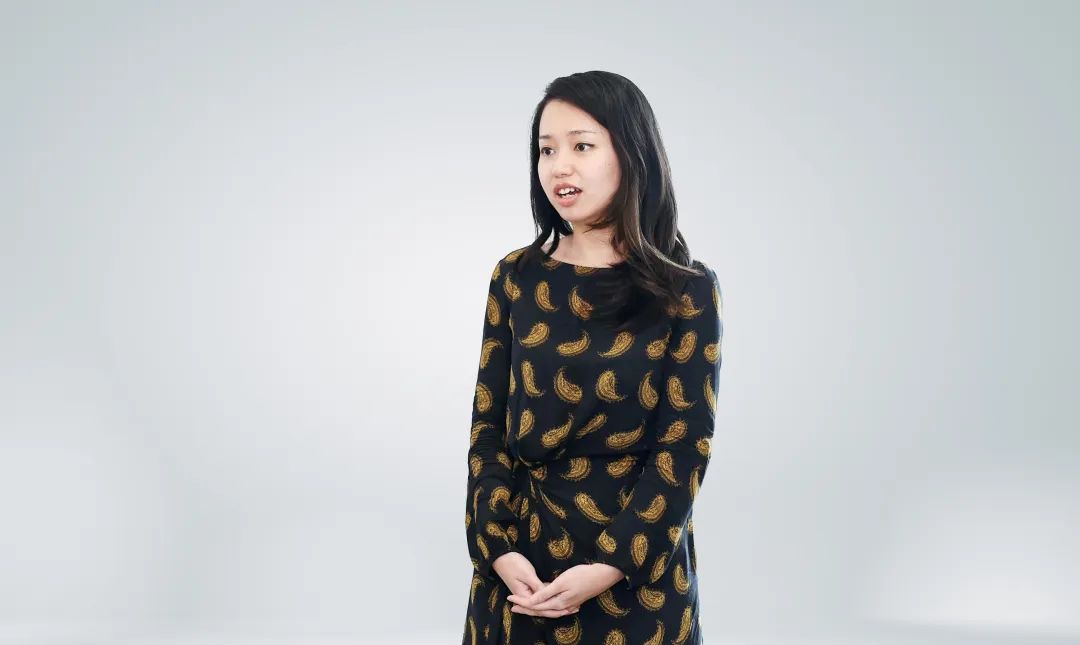Everything you need to get the most from your MBA internship
The prospect of interning during your MBA will likely be a far cry from any internship when you were first starting out on your career path. No coffee runs, no photocopying, no ‘busy work’ from colleagues who don’t know what to do with you. Interning with leading companies as an MBA student should be a genuinely valuable experience that opens your eyes to the possibility of a given industry, sector and/or role.
To get a better understanding of how to investigate and secure the right internship and how to maximise its value once you find it, we asked three students from the MBA Class of 2023 to share their internship experiences from this past summer.
Meet the interns

What did you hope to gain from an internship at this point in your studies and career?
Rita: I was looking for a seamless career switch to the healthcare industry. I wanted to intern at a top-tier company (Lilly) to explore whether the function and the company itself were a good fit for me. I wanted a sense of what this industry, and Lilly specifically, could offer me and what working here for the next five years might look like.
Eleni: I was looking to expand my knowledge, skills and networks in the area of sustainability. I was extremely fortunate that I have the opportunity to do this at an international organisation with a pioneering portfolio and world-leading expertise.
Karen: Ultimately, it was about assessing my personal and professional fit within the sector, environment, company and location. I also wanted my internship to be interesting and meaningful (i.e., not ‘busy work’), with a view to potentially gaining an offer of a position with Bayer if the fit was right.
Takeaway: For any MBA student, an internship should be the ideal opportunity to either solidify your thoughts on what role/industry/sector is right for you, or dip your toes elsewhere if other areas seem more appealing.

Rita Qiu and her MBA classmates following a talk by Eli Lilly China President and General Manager Julio Gay Ger about life at the healthcare giant
How did you secure your internship? Did you do anything in particular to get it?
Karen: Being proactive and prepared was the key. Also, an element of luck is always helpful! I made sure to speak to a couple of the CEIBS alumni during the company presentation to get more insights into the company and the interview process.
Rita: I directly approached Lilly executives through a campus talk. Then I conducted mock interviews with Lynn, our MBA Career Development Centre (CDC) consultant. The earlier you get started preparing for the internship application, the more opportunities you will have. It’s also vital that you engage with people who can help you get prepared, especially the CDC consultants, alumni, and your peers.
Eleni: I applied directly to the IFC Global Internship Program. This was a highly competitive process, and I was privileged to be one of the 60 applicants selected worldwide out of 3,500 candidates.
Takeaway: Talk to everybody! Look for sources of insider knowledge and advice wherever possible to better acquaint yourself with the company of your choice and their internship processes.

Eleni Petri representing the World Bank Group's International Finance Corporation
What were your duties as an intern?
Eleni: I was working with IFC’s ESG and Climate Thought Leadership Unit, which is based in Washington DC. I consulted for the team, and I was a core member working on climate change and relevant policy development.
Rita: I needed to figure out a solid solution for the main challenges the business unit faced in 2024, within a period of 10 weeks. To deliver the solution on time, I needed to conduct desk research, consult colleagues from almost all departments in the company, and visit clients together with the salesforce.
Karen: I managed one workstream on a project for my manager, which was about product supply strategy for Bayer’s crop protection portfolio in China. I also had the opportunity to support the team on an internal initiative – setting up a new office in my home country of Singapore!
Takeaway: Any internship targeting MBA student-level professionals should offer exceptionally meaningful and fulfilling work. As well as daily duties, look for opportunities to take the initiative, take on more responsibility and learn all you can from individuals and programmes within the company.
Did the internship live up to your expectations?
Rita: Definitely. The internship transformed me from a healthcare outsider to an industry insider. I developed a high-level overview of what the industry, the company, and different departments look like in reality.
Eleni: It went well beyond my expectations! I was delighted and honoured to be a part of a fantastic team who embraced me and provided me with access to some of IFC’s flagship projects. This was a unique set up that enabled me to acquire invaluable knowledge and expertise.
Karen: Yes, even considering I did most of the internship online because Shanghai entered lockdown two weeks before I was supposed to begin. The overall Bayer Consulting team was great in terms of putting in the effort to include me, and my project manager especially really helped me get used to their office norms and culture.
Takeaway: Great internships should offer you the chance to integrate fully with the host organisation. It should be a chance to become ‘one of the team’, rather than a temporary and background figure.

Karen Xi preparing for her internship interview at Bayer Consulting
Did you apply your MBA knowledge to the tasks involved?
Rita: The strategic thinking ability instilled in me by the MBA programme allowed me to create workable solutions, quickly gain people’s trust, integrate into the team, and deliver.
Karen: While I don’t recall having to draw on specific MBA knowledge, there were several business case studies that were more generally useful. A consulting case practice from my studies formed a key part of my interview prep.
Eleni: Certainly, my CEIBS (and now INSEAD, as I am on the CEIBS-INSEAD exchange programme) MBA experience has significantly improved my soft skills, like critical thinking, problem solving, teamwork, leadership and intercultural fluency. All these have proven invaluable during my work at IFC.
Takeaway: MBA knowledge can be vital both in preparing you for finding a valuable internship and for making the most of it. Soft skills as well as directly applicable business knowledge will help you narrow down the most viable internship options, and then impress the companies offering them.
What makes an internship valuable?
Rita: It should engage you from the moment you start. It should broaden the network of people you engage with, while giving you a wholly realistic and immersive idea of what it’s like to work within that function, company and industry.
Karen: An internship is fundamentally a way for students to secure full-time job offers and/or test their interest in a career path or industry. Most are not useful for business-related objectives like building industry connections or launching new projects. The focus should be on self-discovery, and potentially getting a foot in the door.
Eleni: The work you do should have weight and meaning. It should chime with your own world view and career ambitions. Therefore, it’s so important to think carefully about what you want from your internship and choose carefully.
Takeaway: Any interaction with the company early on should give sufficient clues as to what they want to offer you, and what they expect from you. On arrival, the company should be quick to make you feel welcome, valued and engaged.
What advice would you give to MBA students looking to get the most out of an internship?
Karen: You must be clear on your purpose and expectations. What do you want out of this internship? The opportunity cost of doing the wrong internship is high, and typically it is not easy or even possible to terminate an internship early. Choose wisely and do not feel pressured to ‘settle’ for one ‘just in case’. The MBA programme has great resources, but you have to actively leverage them.
Rita: Be proactive. Target the industry and the function that most appeal to you, but also consider the knowledge you would like to gain, the skills you want to strengthen, and the kind of people you want to know and work with. Be clear about the deliverables and key decision makers’ expectations.
Eleni: An internship can be a once-in-a-lifetime opportunity, so my advice is to fully understand the organisation you want to work for, and its offerings. Immerse yourself in the experience and make the most of it. They should want to show you what they’re all about, but you have to be fully present, willing and able to capitalise on their offering.
Takeaway: Making the most of any internship is a partnership. The company provides you with the means to familiarise yourself with their ways, and actively contribute to their daily operations and/or long-term strategic goals. While companies with valuable internship programmes should be adept at utilising MBA talent properly, you will be expected to take the initiative, demonstrate your full capabilities, and potentially find yourself a niche that goes beyond their expectations of an intern.












